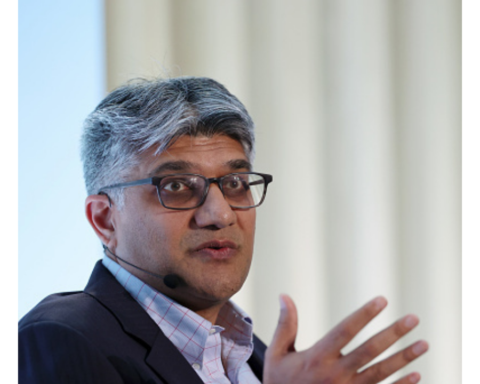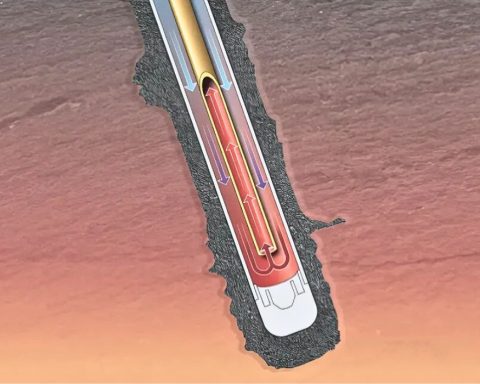When General Electric chief executive Jeff Immelt says he wants to clean up the oil sands, he does so knowing that his company has the potential to truly clean up in the oil sands.
Oil sands developers are struggling these days to get social license for their projects, and that means reducing the environmental and climate impacts of their operations. GE appears eager to tap into that market opportunity, which explains its membership in COSIA, or Canada’s Oil Sand Innovation Alliance.
Earlier this week, GE and COSIA founding member Suncor Energy announced two deals that could see up to $18 million invested in technologies to reduce greenhouse-gas emissions and water use in the oil sands.
This is pocket change for the companies involved. But GE, by demonstrating and sharing knowledge of the technology to all COSIA members, has high hopes its innovation will eventually be embraced by all of the major players in the oil sands.
That GE wants to profit by putting lipstick on the proverbial pig is no surprise. Sure, some may call it greenwashing because it can be perceived as enabling a carbon-intensive industry. But for GE, helping oil sands operators reduce their environmental impact is completely in the spirit of its Ecomagination initiative, which is about making existing industries more resource-efficient and creating new ones that pave the way to a low-carbon economy.
CK is curious to know what readers think. (Please comment below or tweet this article along with your view).
A nod to open source?
What drew my interest earlier this week were comments from Immelt that appeared in Canada’s Globe and Mail. GE’s long-time CEO told the newspaper that he is aligned with the thinking of Tesla Motors CEO Elon Musk, who in June announced on his blog that Tesla’s patents are free for anyone to use and build on if it means growing the market for electric vehicles and accelerating efforts to combat climate change.
In a similar spirit, Immelt told the Globe that more energy companies need to collaborate and share intellectual property — rather than fiercely guard it — if they want to move forward as an industry.
“I think we live in an open-source world,” Immelt said. “I’m more aligned with Elon than I am with others to say: if you can really set a goal and get everybody to put their chips on the table and go after it, I actually think everybody benefits in the end.”
Immelt continued: “I’m always willing to fight it out in the marketplace. Particularly in a case like this, evolution of the industry benefits everybody, much more than trying to figure out how instead of having 30 per cent market share I can have 32, if only I kept (all intellectual property) right here.”
In other words, growing the pie bigger benefits everyone.
It’s a nice buzz term: “open source” — not to be confused with “crowdsourcing,” which is what GE is doing with its Ecomagination Global Challenge. The former is about opening up intellectual property for others to freely use and improve on; the latter is about stimulating the generation of ideas from others that can spark new innovation.
Immelt seems to be using the term open source in its narrowest, most restricted sense. From what I can tell, in the context of the COSIA announcement, he sees it as benefitting an industry that shares technology innovation if doing so is the best, perhaps only, path to survival.
And on that note, the major oil companies have a lot of sharing they could do. ExxonMobil, which is indirectly a member of COSIA through its majority ownership of Canada’s Imperial Oil, leads the world on patents for carbon capture and is among the top patent holders for clean coal technology, according to a report from Chatham House.
Shell and Conoco Phillips, two other COSIA members, are also leading owners of intellectual property in these areas.
Are they opening up and sharing with their big oil buddies? It’s tough to envision, though it would be a nice vision.
GE also holds a massive number of patents across the clean energy spectrum, including clean coal and carbon capture. It is among the top patent holders for wind, and has hundreds of patents related to solar and biomass energy technologies.
If Immelt truly embraced the spirit of an open-source world and the benefits it can bring to society and the larger economy, he would open up GE’s entire intellectual property stockpile for all to see and use.
Such leadership – that willingness to “fight it out in the marketplace” — would be more than welcome from a titan like GE. As far as clean energy innovation is concerned, it would be a true game changer. But it seems unrealistic.
While true that GE may be sharing a small amount of its technology with a group of strategically aligned oil sands companies, make no mistake that there is an army of lawyers from every member making sure nothing slips through the cracks.
This isn’t open source in its truest sense, and is certainly shouldn’t be confused with GE’s crowdsourcing efforts. And while it may be a step forward for the oil industry – and GE – it’s not the kind of innovation sharing that’s going to save the world, or which Elon Musk is talking about. What it may do is buy a little more time for an industry looking riskier by the day, and spur a few major sales for an industrial conglomerate that’s selling what the market currently demands.







